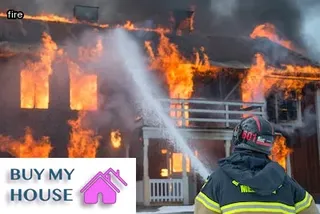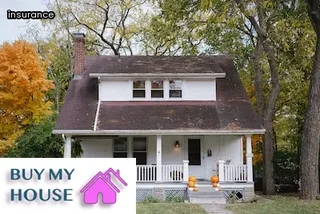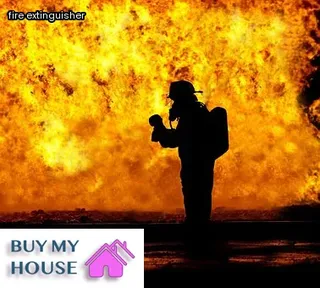Rebuilding a house after a fire is an expensive process that can vary greatly in cost depending on the type and severity of the damage. Generally, fires are classified as Class A, B, C, or D.
Class A fires involve combustible materials such as wood and paper, while Class B involves flammable liquids such as grease and oil. Class C fires involve electrical equipment or wiring, while Class D involves combustible metals like magnesium or potassium.
The cost of rebuilding depends on the type and extent of the damage; for example, repairing smoke and water damage from a Class A fire is typically less expensive than replacing all electrical wiring from a Class C fire. In addition to the repair costs associated with each class of fire damage, there may be additional expenses related to clean-up and restoration efforts that should be considered when estimating the total cost of rebuilding after a house fire.

When it comes to the cost of rebuilding a home after a fire, there are several factors at play that can influence the final price tag. The size and age of the home, as well as the extent of damage caused by the fire, will all impact how much it costs to restore the property back to its original condition.
The type of materials used in construction also affects the cost of restoring a home after a fire since some materials are more expensive than others. Additionally, if there is any environmental damage caused by the fire—such as smoke or water—then this too must be addressed when calculating restoration costs.
Other considerations include whether any special equipment or services will be needed for repair work and what type of insurance coverage is available. Understanding these various factors can help homeowners prepare for what to expect when it comes time to rebuild their house after a fire.
House fire restoration services can be vital for families and individuals that have had their home destroyed by a fire. Common services that are offered include smoke and soot damage cleanup, debris removal, structural repairs, odor removal and sanitation, water damage repair, and more.
Smoke and soot damage can cause staining to the walls, ceilings, and floors of the home as well as furniture and other items. Debris removal involves removing charred materials such as drywall, insulation, flooring materials, furniture, appliances and other items that have been damaged in the fire.
Structural repairs can include replacing attic trusses or support beams that were weakened or destroyed in the fire. Odor removal requires specialized cleaning processes to remove smoke odors from carpets and upholstery while water damage repair may be needed if water was used to put out the blaze.
Each type of restoration service is necessary to ensure a safe living space is recovered after a house fire.

When rebuilding a home after a house fire, it is important to consider the local building codes and laws that may impact the process. Depending on where you live, there may be restrictions on the materials used for reconstruction, as well as limits on the size of the structure or other modifications made.
In addition, there may be specific regulations regarding safety standards that must be met to protect occupants from potential hazards in the future. It is also important to note any permits or inspections required by local authorities prior to beginning work.
Costing these additional requirements into a budget for restoration can help homeowners prepare financially for an unexpected expense. Furthermore, understanding all applicable laws and codes beforehand can help avoid costly delays in construction due to improper permits or non-compliance with regulations.
Taking these factors into consideration can ensure a smooth and successful project when restoring a home after fire damage.
When deciding whether to hire a professional or attempt to DIY fire damage restoration, it's important to consider the cost-benefit analysis of each option. The cost of hiring a professional fire damage restoration company may include the labor and materials needed for repairs, as well as any additional services such as smoke odor removal or pack-out services.
On the other hand, DIYing fire damage restoration can involve purchasing supplies such as paint, drywall, insulation, and flooring; renting tools; and possibly taking time off work to complete the work. Although DIYing is often cheaper initially, it’s important to factor in the cost of any mistakes that could be made or increased repair costs due to lack of experience.
Additionally, professionals may be able to take advantage of suppliers' discounts that are not available when buying materials at retail prices. Ultimately, both options can bring their own benefits but must be carefully considered before making a decision.

When a house is damaged by fire, the cost of rebuilding can be intimidating.
Professional fire damage restoration services can provide an invaluable resource in bringing a home back to its previous condition, ensuring that all repairs are done correctly and providing peace of mind.
The benefits of hiring a reputable, experienced company to restore a home after a fire include access to skilled technicians trained in safe and proper procedures for restoring property; comprehensive services including smoke removal, soot removal, and odor control; full inspections of the extent of the damage before beginning any repairs; superior customer service from local professionals who understand the challenges faced when dealing with fire damage; and insurance paperwork assistance to help expedite any claims.
By taking advantage of these benefits, homeowners can be sure that their homes will be restored to their pre-fire condition as quickly and efficiently as possible.
When dealing with the aftermath of a house fire, having insurance coverage can be incredibly helpful in financially supporting the process of rebuilding. It's important to understand exactly what your policy covers and what restoration costs you may need to pay out of pocket.
Many home insurance policies will cover the cost of replacing damaged items that were destroyed in the fire, as well as any additional expenses associated with repairing damage caused by smoke and soot. Insurance coverage may also include costs related to debris removal, temporary living expenses while repairs are being made and even professional cleaning services.
It's important to read through your policy thoroughly and contact your insurance provider if you have questions about specific coverage details so that you can make an informed decision when it comes time to rebuild after a house fire.

When selecting a contractor for house fire restoration work, it is important to research the company thoroughly and look for credentials that indicate quality work. Make sure the contractor has experience dealing with fire damage and inquire about their methods of restoring affected areas.
Ask to see references from previous clients they have worked with in order to get an idea of their performance. In addition, always request an estimate before hiring a contractor to make sure their services are within your budget.
It is also a good idea to compare quotes from different contractors so you can get the best deal. Verify if the contractor has any insurance that covers any potential damages or accidents during the project.
Make sure to read all documents carefully and understand what is covered by their insurance policy before signing anything. Lastly, ask if there are any guarantees or warranties available on their work in case something goes wrong after completion.
Taking these steps will help ensure you select the right contractor for your house fire restoration work and minimize the cost of rebuilding after a house fire.
Rebuilding after a house fire can be an expensive and complex process, with costs varying depending on the severity of the fire, the size of the home, and other factors. It is important to understand the normal range of fire damage restoration costs so you can better prepare for what to expect in terms of expenses when rebuilding your home.
Generally speaking, you should plan for a minimum of $3,000 to $5,000 for basic repairs such as smoke removal and structural repair. In addition, items damaged by fire or smoke will need to be replaced.
This includes furniture and flooring, as well as drywall and electrical wiring that may have been damaged. Fire suppression systems - such as sprinkler systems - will also need to be professionally inspected before being repaired or replaced.
Depending on the extent of the damage, it is not uncommon for homeowners to spend up to 10 times their initial estimate on rebuilding costs due to unexpected issues that arise during the restoration process. If there is significant water damage from fighting the flames then additional measures may need to be taken such as mold remediation which adds further cost and complexity.
As always it is best practice to get multiple quotes from reputable contractors who specialize in fire damage restoration in order to compare estimates and ensure you are getting a fair price.

Rebuilding after a house fire can be an expensive and lengthy endeavor. It's important to understand what repair and replacement considerations will be necessary for damaged structures.
Homeowners should expect to replace drywall, insulation, flooring, roofing, siding, windows and doors. In addition to the structure itself, electrical wiring and plumbing may need to be replaced as well.
Often times smoke damage requires that furniture and other items also be replaced. Hiring a professional contractor is a wise decision when dealing with such extensive damage as they are familiar with local building codes and can determine if any structural components require additional reinforcement or if any modifications must be made due to code requirements.
Additionally, contractors can often get better prices on materials than homeowners can purchase themselves. Aside from the physical repairs, homeowners should also consider budgeting for other costs associated with rebuilding such as permits or inspections fees and any potential debris removal expenses.
When rebuilding a home after a house fire, proper containment procedures are crucial for removing charred materials. It is important to take the necessary steps to ensure that these materials are removed in a safe manner that does not risk further damage to the home or its occupants.
Depending on the severity of the fire, this could include tarping off the area, covering windows, and making sure all debris is contained in sealed bags for removal. Fireproof gloves, masks, and other protective gear should also be worn when handling ash or soot-covered items.
Additionally, it may be necessary to hire professionals with specialized equipment for safely removing hazardous chemicals and smoke-damaged insulation from the property. Ultimately, understanding and implementing the best containment procedures will help lower costs associated with rebuilding after a house fire.

Cleaning up after a house fire can be a daunting process, and it is important to understand what to expect when it comes to the cost of rebuilding. Carpet, wood flooring, drywall and insulation are some of the items that need to be considered for replacement after a fire.
It is essential to obtain professional estimates from contractors for each of these items as costs will vary depending on the severity of the damage. Carpeting may require only minimal repairs or complete replacement, but either way it is important to ensure all smoke residue has been thoroughly removed as this can cause health issues in the future.
Wood flooring may also require replacement, but again this needs to be assessed by a professional contractor who can inspect for any water damage that may have occurred during the firefighting efforts. Drywall and insulation will likely need replacing completely due to smoke and water damage and if not done correctly they could present long-term problems such as mold growth.
With all these considerations in mind, it is important to remember that there are financial resources available through insurance companies and local governments which can help cover the costs associated with rebuilding after a house fire.
When rebuilding after a house fire, it is important to understand the various suppression techniques and future plans that may affect the cost of restoration. Fire sprinkler systems are an effective way to suppress flames and reduce damage, though installation costs can be considerable.
It is also important to consider smoke alarms and other early warning systems as well as fire retardant building materials when estimating reconstruction expenses. While fire insurance may cover some of the costs associated with rebuilding, homeowners should take into account any deductibles or exclusions that may impact their financial responsibility.
A qualified contractor should be consulted to develop a plan for rebuilding and help make sure that all necessary steps are taken to ensure safety and bring the home back up to code.

After a house fire, it is important to understand the different types of smoke, soot, and odor removal services that are available. Smoke, soot, and odors can all linger for long periods of time and cause health concerns if not addressed properly.
The most common type of smoke damage restoration involves removing soot from walls, ceilings, and other surfaces with specialized cleaning products. Odor neutralizing treatments are also available to eliminate any lingering odors caused by the fire.
Deodorizing products can be used to treat carpets, furniture, drapery, upholstery, clothing, and other fabrics to remove any traces of smoke or soot left behind. Smoke sealants are also used to protect against additional damage from smoke particles in the air.
Other services such as repainting walls and replacing damaged ceilings may be necessary depending on the severity of the fire. It is essential to consult with a professional restoration company to ensure that all aspects of the job are completed correctly and cost-effectively when it comes to rebuilding after a house fire.
During a house fire, the most important thing to remember is safety. It is essential to ensure that everyone in the home has safely exited the premises before attempting to put out the fire.
Once all people and pets are safe, never try to re-enter the building until it has been cleared and deemed safe by the local fire department. During any restoration process following a house fire, there should always be at least one person present on site at all times.
This helps reduce liability for contractors who may otherwise be blamed for any accidents or further property damage that could occur while no one is onsite. All workers should wear proper safety gear and use caution when stripping or demolishing parts of the home.
In addition, it's important to make sure that all wiring and pipes have been inspected by professionals before attempting to do any rebuilding work in order to avoid any potential electrical shock or water damage hazards.

Rebuilding a home after a house fire is an expensive and difficult process. Insurance companies will often cover the cost of rebuilding, but it is important to understand what to expect when estimating the cost.
The first step in estimating the cost of rebuilding is to understand the extent of the damage. If only certain areas of the home were affected by the fire, then those areas will need to be repaired or replaced depending on the severity.
Additionally, any items that were destroyed in the fire must be replaced. The cost for materials such as lumber and drywall can quickly add up if it's necessary to replace entire walls or floors.
It is also important to factor in labor costs associated with rebuilding, since hiring a contractor may be required and this can become quite costly. Lastly, if any special equipment or procedures are needed such as asbestos removal or additional safety precautions, these should also be factored into the estimate of rebuilding costs after a house fire.
The length of a typical house fire restoration project can vary greatly depending on the severity of the damage and scope of the rebuilding project. After an initial assessment, a contractor may provide an estimate for how long it will take to complete the restorations.
This timeline can also be affected by factors such as availability of materials and labor, as well as weather conditions that may delay work. Homeowners should research local contractors and get multiple quotes so they can make an informed decision about who will do the best job in the most efficient time frame.
It’s also important to read any contracts carefully before signing off on a deal, making sure that all expectations are met and that any contingencies are clearly stated in writing. Understanding what to expect regarding cost and time frames is key when it comes to negotiating with contractors when rebuilding after a house fire.

A standard house fire inspection report typically includes a detailed assessment of the current condition of the home, including any damage caused by smoke, soot, and water, as well as an analysis of potential safety risks. The inspector will look for signs of structural damage, such as crumbling walls or ceilings, weakened flooring, and compromised electrical wiring.
The report also considers any hazardous materials that may have been released by the fire, such as asbestos or lead paint. In addition to the physical examination of the house and its contents, the inspector may take samples from various locations in order to determine if they contain hazardous chemicals or contaminants.
Finally, a standard house fire inspection report will provide an estimate of repair costs based on the extent of the damage sustained during the fire.
Home fires can have a devastating environmental impact, both on the local environment and on global ecosystems. Smoke from home fires is composed of many toxic chemicals that can pollute the air in nearby neighborhoods, and ash and debris left over from fires can contaminate soil and water sources.
Restoring a home after it has been damaged by a fire can also cause some environmental damage through the use of materials such as asbestos or lead-based paints that may have been used when building the home. Understanding the potential environmental risks associated with fires and restoration projects is important so homeowners can make informed decisions about how to best protect their homes and their neighbors.
Homeowners should also ask questions of their contractors regarding the types of materials being used in any restorations, as well as what steps will be taken to minimize potential environmental impacts.
Rebuilding after a house fire can be a daunting process, but knowing what to expect in terms of timing can help you plan and manage your expectations. Generally speaking, the rebuilding process can take anywhere from 6 months to a year or more depending on the severity of the damage.
The amount of time it takes to rebuild will depend largely on the extent of the damage, as well as other factors such as availability of materials, local building codes and regulations, insurance claims delays and weather conditions. It's important to note that if you are dealing with extensive smoke damage, this could add several more weeks or months to the rebuild timeline.
In addition, if you need to replace any electrical wiring or plumbing systems this could also add to the length of time needed for rebuilding. Ultimately, rebuilding after a house fire is an unpredictable process that requires patience and understanding from all involved parties.

When it comes to calculating the cost of rebuilding after a house fire, there are many factors to consider. Homeowners should be prepared to cover the cost of cleaning up debris, smoke and soot damage, replacing burned materials like furniture and appliances, as well as structural repairs.
The amount of money needed to rebuild can be estimated by assessing the extent of damage caused by the fire and making an inventory of what needs to be replaced. It is important to keep in mind that some materials may require professional repair or special materials that can add to the total cost.
Homeowners should also factor in any additional costs associated with staying in temporary housing during reconstruction. Insurance companies typically provide a list of qualified contractors for home restoration services, but it is always recommended that homeowners get multiple quotes from different companies before selecting one for their project.
With careful planning and budgeting, homeowners can make sure they have a realistic estimate for the cost of rebuilding after a house fire.
Rebuilding a house after a fire can be an expensive endeavor. The first step is to assess the damage, and then create a plan of action to rebuild the structure.
Your insurance company may cover some of the cost, but you should also consider other options such as financing or loans. Depending on the extent of the damage, you may need to purchase new building materials, hire an architect or engineer to draw up plans, and hire skilled labor for the project.
It's important that you research local building codes and permits so that all construction work is done to local standards. You might need a contractor who specializes in post-fire reconstruction, as this type of work is often complex and time-consuming.
Once all building materials and labor are in place, expect to spend several weeks or months putting your home back together again. Although rebuilding can be costly and time consuming, it's worth it when you get your home back in order after a devastating event like a fire.
Buying a house that has experienced a fire can be a great opportunity for someone looking for an affordable home, but it is important to take into account the cost of rebuilding after the fire. Rebuilding a house that was recently damaged by fire can be expensive and time consuming, depending on the severity of the damage.
It is essential to carefully research the extent of the damage, as well as any necessary repairs or replacements that need to be done in order to make sure that the house is structurally sound. Additionally, it is important to factor in labor costs and materials when considering how much money needs to be budgeted in order to rebuild after a house fire.
Ultimately, while purchasing a home with recent fire damage may seem like a good idea at first glance, it is important to consider all of the associated costs before making such an investment.
A: The cost of rebuilding a house after a fire typically depends on the extent of the damage and the type and quality of materials used. Factors such as air conditioning, heating, and ventilation can increase the costs significantly. Depending on these factors, it may cost anywhere from $50,000 to over $250,000 to rebuild a house after a fire.
A: The cost of rebuilding a house after a fire in the U.S. can vary greatly depending on the size and scope of the damage, but estimates range from $10,000 to over $200,000.